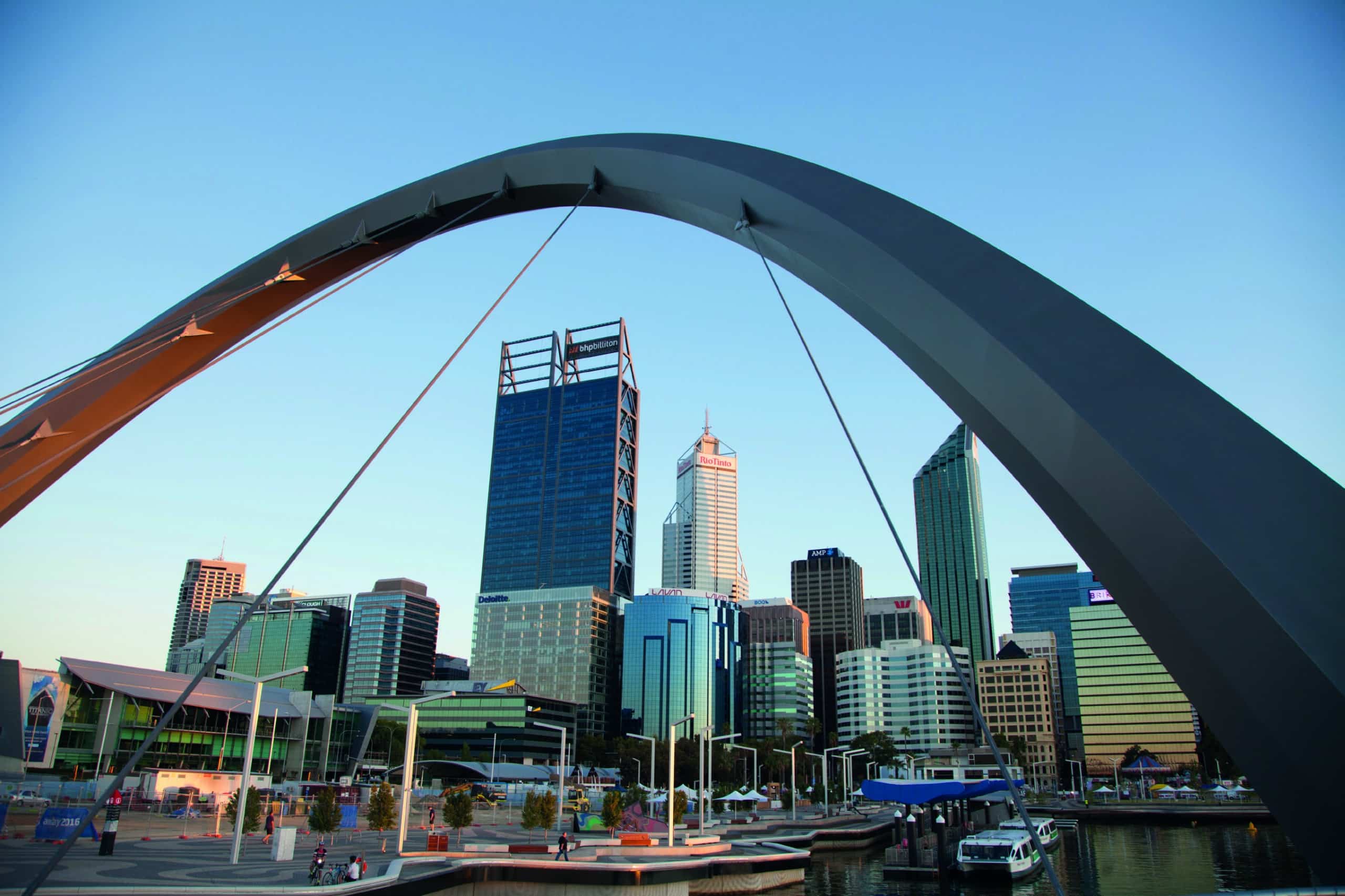Chris Rodwell shares his thoughts with Business Pulse on the opportunities ahead for WA business, what he brings to the table and what he’s learnt in trade and investment positions for the Queensland and Federal governments. He has relocated to Perth from Mexico and has been settling into the role of CCI CEO, which was vacated last month by Deidre Willmott.
What do you hope to achieve at CCI in the next, say, three to five years?
CCI is the movement for business. In the past decade we’ve seen many other organisations take aim at business, conveniently overlooking the contribution business makes to improving the lives of West Australians.
We need to set the record straight. As a movement, we need to reach out to the broader community to tell the story of job creation and of innovation that underpins our prosperity. Addressing the current imbalance is critical.
This work fits into a bigger picture of globalisation, which brings both more intense competition and incredible opportunity for WA businesses. CCI has a critical role in supporting local businesses to compete and collaborate across more industries and in more markets.
What attracted you to apply for the CEO’s position?
CCI has a long history in serving the needs of the business community and in seeking reform that makes a real difference, not only to Members but ultimately to the people in this society. There is an extraordinary opportunity for us to represent business, ensuring the community understands the very extensive impact business has in improving the livelihoods of all West Australians.
How can Members be confident you are the right person for this job?
Optimism is core to my approach. I look at the current business environment and the impact of globalisation and I see a lot of opportunity attached to it – for us to grow, create new ideas and also to respond to some of the criticisms by simply getting better at demonstrating the value that the business community brings to the broader community.
The reality is that our future is as brilliant as we imagine it to be. WA is a natural home to pioneering thought. As long as we marry our intellect with action, we will ensure the lives of all West Australians is improved.
We need to better understand how the emergence of new business models, often founded on digital and other technological transformation, will impact current approaches.
I want to help WA business come to grips with all these issues and challenges – that on the one hand might look daunting, but on the other provide extraordinary opportunities.
How does WA compare with the rest of the world in terms of international trade and are we keeping up with how other countries operate?
WA is obviously an economy underpinned by trade and investment. It has very significant flows with Asia, but also with other places around the globe and I think it has been fundamental to WA’s DNA and to its prosperity. But there is always a need to do more.
That is particularly the case for WA, where you could argue that a lot of that trade has occurred in bulk commodities – whether that relates to mining activity, gas, or agriculture. There is a greater need to diversify the WA economy. We see some of that occurring. For example, in the defence industry and hopefully in other areas. For example, renewable energy in areas such as lithium, wave energy and so on.
While our geography puts us at the heart of the Indo Pacific region, we also shouldn’t overlook opportunities elsewhere in the world. It’s stating the obvious but globalisation is global. There will be a huge volume of opportunities in the immediate region, but our ambitions should be global, especially when it comes to investment.
What sort of a network have you established that WA business may be able to leverage?
I have spent more than half my career, including this entire decade up till now, outside of the country in senior trade and investment roles.
It has given me exposure to thinking and networks that I would hope I can bring to bear in support of WA companies as they spearhead a broader national effort to transform our economy.
A huge part of my role in Mexico was based around the extractive industries in oil and gas and in mining, also in manufacturing and food and agribusiness. So, I’ve worked with a number of WA-headquartered companies to help them understand overseas markets. I’ve also supported them as they move through the process of making significant commercial deals.
Describe an average work day as a commissioner in Mexico
There is no average day in the life of a trade and investment commissioner. It is extremely varied. The most important thing to do in those roles is to act strategically – to look at how we’re going to see a quantum shift in Australian and Western Australian participation in the value chains that exist in major markets.
In Mexico, much of the effort was focused on trying to shift some of the larger Australian companies into the market, to provide a beachhead for others to leverage from. That strategy defined the focus of the team in Mexico, from supporting market entry related to historic energy reform, visiting mine sites with Australian suppliers, or brokering relationships in international education.
Now with the TPP11 there is an extraordinary opportunity for Australian exporters. WA’s grain, beef wine and mining services producers should especially take note.
Did you have a big role in formulating the Trans Pacific Partnership?
The leadership for the TPP11 (Trans-Pacific Partnership) was provided at a ministerial level and by the Department of Foreign Affairs and Trade. Austrade’s role is simply to provide guidance in terms of support to the negotiating team and in terms of providing insights on, and links to, companies potentially impacted by a deal.
How would you gauge your success in Mexico?
Well, I can’t claim anything without recognising it was a ‘team Australia’ effort – Austrade, the embassy and the Australian businesses. There was a fundamental shift in Australian presence in Mexico which can be measured in the billions of dollars. The most significant part of that was the historic deal brokered between BHP and the national-owned petroleum company PEMEX. Austrade and the embassy played a role in supporting BHP in its early work to understand the market.
What was it like going on the first ever trade mission to Cuba?
Cuba is a really interesting market because it remains a centrally-planned economy and there are certainly significant opportunities for Australian companies there.
We looked at opportunities across mining, food and agribusiness, and tourism. It is not – and is unlikely to ever be – a major strategic trading partner for Australia but there are some significant niche opportunities attached to the market. Apart from that, it was obviously an historic moment for Australia to have a trade mission heading to Cuba.
You led an employer group in Queensland from 2007-10 but have been overseas since. What have you learnt in that time that WA business community can benefit from?
It’s a predictable answer I suppose. I have a more global perspective. A decade ago, we were in the midst of the GFC before entering into an era of subdued economic growth and trade flows. To add to that we’ve had enormous geopolitical change and unprecedented disruption to business models across the world.
We need to recognise that WA’s future prosperity will be determined by our capacity to forge a bigger footprint in international markets, by harnessing the benefits of digital and other technological transformation in an economic setting that bears little resemblance to the industrial model that underpinned our economy for so long. On that score, I’ve spent much of my career working with businesses to adapt to that reality.
►At CCI we know that helping business work helps West Australians work. Talk to our Membership team today on 1300 422 492 about how we can help grow and support your business.












